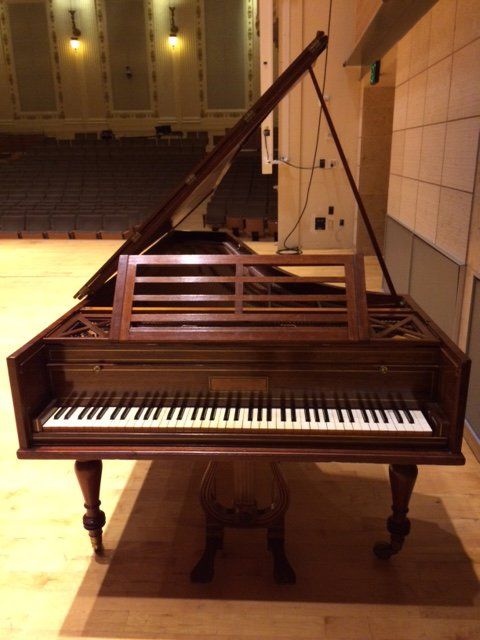Original Compositions by Michael Kimbell, DMA
PDF files are free of charge except for harp compositions, which are available for a modest fee.
 Write your caption hereButton
Write your caption hereButton
Brass:
Ricercar
Cello:
Poème for Cello and Piano, 2020
A 12-minute piece in late romantic style for advanced players. PDF includes score and cello part.
Romance for Clarinet, Cello and Piano, 2021
Commissioned by the Left Coast Chamber Ensemble (6 min)
Clarinet:
Fantasia for Two Clarinets
2021 Commissioned by the Left Coast Chamber Ensemble (7 min)
Five Dialogues for Two Clarinets, 1967
Five short, witty pieces for advanced players. “The five short duets were quick-witted and imagistic, partners chasing and tripping each other with sharp trills and nymphic panpipes.” — Adam Broner
Romance for Clarinet, Cello and Piano, 2021
Commissioned by the Left Coast Chamber Ensemble (6 min)
Sonatina for C or Bb Clarinet & Piano, 2010 & Concertino for C or Bb Clarinet & Orchestra, 2012
Rondino Scherzando for Eb Clarinet, Bassoon and Piano, 2008
Choral Works:
Come, Sleep for SATBB chorus and optional organ or viol accompaniment, 2022
Farley Pearce performs all five parts on viols
Of Birds and Beasts for SA chorus and piano (1979)
Two original folk-like melodies and three European folk songs, set for two-part treble
chorus (or two soloists) and piano.
Winner of the 1979 Music Teachers Association of California “Composers Today” Competition.
Remembering for Atonement
for SATB chorus and orchestra, 2016
2222 2230 SATB timp str
Poem by Viktoryia Neverov-Krstic, in commemoration of the sent-down youth of the Chinese cultural revolution
5 November 2016 premiere by the Golden Gate Symphony Orchestra and Chorus (with subtitles)
Flute:
Variations on Springfield Mountain for Flute and Piano, 1993
“On Springfield Mountain there did dwell / A lovely youth, I knew him well-eye-ell.”
These lively variations, based on one of America’s oldest folk songs, retell the story of the young couple who die of snake poison; an ironic twist is given to the ending.
Poème for Flute or Violin & Harp, 2011
The harp parts in both versions are identical.
Purchase Either Version from:
Harp:
See Poème for flute and harp, 2011
Premiered June 2009 in the Kaisersaal, Ottobeuren, Germany and at Salon Linton France, Vienna, Austria by Nándor and Katrina Szederkényi, and performed at the 2011 World Harp Congress in Vancouver, Canada
Ballade Arctique (Long Version) for Solo Harp, 2013 & Arctic Ballade (Short Version) for Solo Harp, 2013
Musical retelling of a true story related by Canadian author Farley Mowat in his book People of the Deer. An Innuit hunter fails to bring back food; his wife and child perish. Featured on CD “Fantasies & Fugues by Katrina Szederkényi.
Purchase the CD Today:
Ballade Arctique (full version):
The Desolate Far North—Starving Family—The Hunt—Another Starving Family—
Wolf Nightmare—Stolen Carcass—Death of Wife and Infant—
The Grandmother’s Curse (fugue)
Ballade Arctique (short version):
The Desolate Far North—Starving Family—The Hunt—
Death of Wife and Infant—The Desolate Far North
Purchase Short Version Score from:
Into the Stars, A Musical Journey into the Carina Nebula (Toccata and Fugue on B-A-C-H) for Solo Harp, 2015
Premiered by Katrina Szederkényi at the 2016 Szeged Harp Festival and Competition
Nov 30, 2016 Premiere by Katrina Szederkényi at the opening concert of the International Harp Competition, Szeged, Hungary
Purchase from:
Opera
The Hot Iron, Opera in One Act for Three Singers (SAB) and Piano
Short chamber opera in one scene for three singers and piano;
Libretto by Ross Halper, based on the German play by Hans Sachs.
First performance 11 April 1997 at the Cinnabar Opera Theater, Petaluma, CA:
Kamala Stroup (Wife)
Rosalee Szabo (Auntie)
John Rose (Husband)
Elizabeth Lee (Pianist)
Orchestra (Chamber)
Kritik des Herzens for Tenor and Chamber Orchestra, 2003
A cycle of six Lieder in the tradition of Gustav Mahler and Richard Strauss; settings of poems by the great German satirist and cartoonist Wilhelm Busch (1832-1908). Lyrical vignettes and ironic musings on life, love, loss, resignation, and reconciliation. Optional English singing translations by Edith & Michael Kimbell.
“… a contemporary composer, not totally averse to tonality, who knows how to make skillful use of recent innovations. He has a real affinity for Wilhelm Busch’s humor and the lyrical sections are also spot-on.”
— Gerhard Seitz, former concertmaster, Bavarian Radio Symphony
Two versions: tenor and chamber orchestra (1111 1000 1perc tenor str) or tenor and piano.
Time Does Not Move for Narrator and Chamber or Full Orchestra, 2006
Version A: 1110 0110 1perc str
Version B: 1111 1110 1perc str
Version C (full orch.): 12(EH)22 2100 1perc str
(German poem by Gottfried Keller,
English performing translation by Edith & Michael Kimbell)
May 2013 performance by Emmanuel Williams and the San Francisco Composers Chamber Orchestra
Front Line for Narrator and Chamber Orchestra, 2014
2(pic)111 1000 1perc str (poems by Emmanuel Williams, recitation with music)
1) Front-line man
2) The Soldier’s Tale
3) Sanctuary
Chaconne on a Theme from Purcell’s “When I am Laid in Earth,” 2018
See Chaconne a4 (TrTBB) & Chaconne a6 (TrTrTTBB) by Michael Kimbell
1111 1000 str
(also in a version for viols)
Orchestra (Full)
Arcadian Symphony, 1997
2(pic)222 2120 2perc str
1) Overture
2) Scherzo
3) Variations
4) Gavotte
5) Tarantella
The title Arcadian Symphony refers to that mysterious and rustic paradise, the idyllic classical haunt of poets and musicians where past and future intersect. Accordingly, the symphony uses formal, harmonic and contrapuntal gestures from classical and romantic suites and symphonies and juxtaposes them with a modern sensibility and idiom. The work is in five movements: a central slow Theme and Variations is flanked by two dance-like intermezzi (Scherzo and Gavotte), while the atmospheric Overture and energetic Tarantella frame the Arcadian scene. The music explores the tensions between light and shadow, playfulness and seriousness, fantasy and taut structure. At the same time the work is a contemporary response and reflection on the works of Carl Reinecke (1824-1910), particularly his evocations of fairy tales.
Arcadian Symphony was awarded First Prize by the Southern Arizona Symphony Orchestra in 1998.
Lacrimae Symphony, 2023
22(EH)22 2230 timp str
1) Pavan
2) Aria
3) Fantasia
((played without pause) wi
The Pavan and Fantasia are based on melodies by John Dowland (1563-1626).
Lacrimae Symphony was premiered in 2023 by the Golden Gate Symphony Orchestra.
Rondino Capriccioso, 2001
2(pic)2(EH)2(Eb)2 4231 3perc str
Rondino Capriccioso (a “small capricious rondo”) was composed in October 2001 and premiered by the CMC Orchestra at the end of that year. This short piece is a tongue-in-cheek quodlibet or assembly of popular tunes that are interwoven throughout its entirety. Most of the melodies can be found in Carl Reinecke’s Musical Kindergarten, an 1890 anthology of short pieces and arrangements for beginning pianists. The primary theme is based on a Turkish march written by the deposed Sultan Mustafa V for his younger brother, the notorious Abdul Hamid II “The Red”. Other tunes that flit in and out of the texture include Haydn’s tune Austria and Home, Sweet Home; the latter is superimposed on the Dies Irae.
Taklamakán,
Tone Poem for Orchestra, 2004
Incantation (Desert Landscape)—Countdown/Voyage/Landing—
Exploration (Mars Rover Fugue)—Vision 1: Gardens—
Vision 2: Romance—Vision 3: Destruction—Epilogue
Taklamakán, which means “You go in, you don’t come out,” is the name of the great central Asian desert in Xinjiang (Sinkiang or Chinese Turkestan, north of Tibet). Oasis-cities, many now half-buried in the sand, once lined the fabled “Silk Road” caravan routes along the mountain perimeters of the desert. Throughout central Asia, archaeologists have painstakingly recovered the remains of “lost” civilisations, their languages and ways of life; sadly, many artifacts have been plundered or destroyed in recent wars, not only in central Asia but in Europe, where “rescued” art was bombed. The exploration of other planets arouses in us similar feelings of mystery: the wonder of discovery, along with intimations of the impermanence of natural conditions which might foster life, as well as the fragility inherent in both the means and the results of discovery.
Time Does Not Move
for Narrator and Full or Chamber Orchestra, 2006
See
Time Does Not Move
Above
Rondino Scherzando,
2007
2pics24(2Eb+2A)2 2000 1perc str
(also in a version for Eb clarinet, bassoon and piano)
Celestial Encounters,
2008 (Based on Fantasy Sonata 1st Movt)
2(pic)2(EH)22 4230 1perc str
Golden Gate Barcarolle,
2015
Version A: 2(pic)2(EH)22 2130 2perc str
Version B: 2(pic)1(EH)13(Cbsn) 1110 2perc str
Michael Kimbell’s Golden Gate Barcarolle is a tone poem, celebrating the name of the Golden Gate Symphony Orchestra, that paints a musical picture of the Golden Gate. Over a gentle, rhythmic ocean swell (hence the piece’s title), the music suggests fog and mist, rocks and cliffs, hills and clouds, the great bridge and the city lights beyond. Individual instruments and sections of the orchestra are showcased throughout.
Piano Duet:
Piano Solo:
Nocturne
String Trio:
Violin:
Viols:
Voice:
1) When our two souls stand up erect and strong
2) I lived with visions for my company
3) Beloved, thou hast brought me many flowers
Three Lieder for Medium Voice & Piano, 1969
1) Auf eine Lampe (Eduard Mörike)
2) Abendständchen (Clemens Brentano)
3) Mondnacht (Josef von Eichendorff)
Emigrant Songs, for Medium Voice & Piano, 1998
Three 19th century American songs with new piano accompaniments
1) The Spinning Wheel (traditional, reworked into a dramatic art song excerpt
2) America, Commerce and Freedom (sailor’s song by Alexander Reinagle)
3) Do They Think of Me at Home (Charles W. Glover & J.E. Carpenter)
Kritik Des Herzens for Tenor and Chamber Orchestra, 2003
1111 1000 1perc str
Version for tenor and piano, 2005
Six Lieder in the tradition of Gustav Mahler and Richard Strauss; poems by the great German satirist and cartoonist Wilhelm Busch (1832-1908). Lyrical vignettes and ironic musings on life, love, loss, resignation and reconciliation. Optional English singing translations by Edith & Michael Kimbell.
1) Es sitzt ein Vogel auf dem Leim
2) Seid mir nur nicht gar so traurig
3) Es flog einmal ein muntres Fliegel
4) Ferne Berge seh’ ich glühen
5) Sie war ein Blümlein hübsch und fein
6) O du, die mir die Liebste war
Woodwinds:
Woodwind Quintet, 1968
An audacious & sarcastic first movement, a breakneck scherzo, a lyrical adagio and a lively fugue are all framed by a fantastic and atmospheric introduction that reappears at the end.
Rondino Scherzando for Eb Clarinet, Bassoon and Piano, 2008
Reviews
Kritik des Herzens:
“… a contemporary composer, not totally averse to tonality, who knows how to make skillful use of recent innovations. He has a real affinity for Wilhelm Busch’s humor and the lyrical sections are also spot-on.”
— Gerhard S., former concertmaster, Bavarian Radio Symphony
Fantasy Sonata:
“Celestial Encounters is an absolutely beautiful piece making full use of the sonorities and expressive qualities of the piano. Creating sound pictures miraculously…, this original work breaks the mold and creates its own.”
— Molly S., in 20th Century Music
“Nebulae … started out with a rumbling, twirling feeling, just as you might imagine vast columns of stellar dust would be; the sounds of this piece were both minute and gigantic, like the universe itself.”
— Cassandra H. B., in
The Hardwick Gazette
Arcadian Symphony:
“The concert … began with Kimbell’s piano rendition of an orchestral Gavotte, drawn from his Arcadian Symphony. Neoclassic in design, the work takes unexpected Prokofievian shifts on a number of occasions, always leaving the listener alert.”
— Phillip G. in
20th Century Music
I've had the pleasure to witness Mr. Kimbell's meticulous work and HIGHLY recommend him. He is a gem and I cannot praise him enough. You will be VERY happy that you hired him to service your piano.
– Suzanne N.
Phone: (650) 359-7693
Email: 2m4e7k@sbcglobal.net
Business Hours: Mon - Fri: 8:30 am – 7:00 pm | Sat - Sun: 1:00 pm - 6:00 pm
Registered Piano Technician—Piano Technicians Guild

